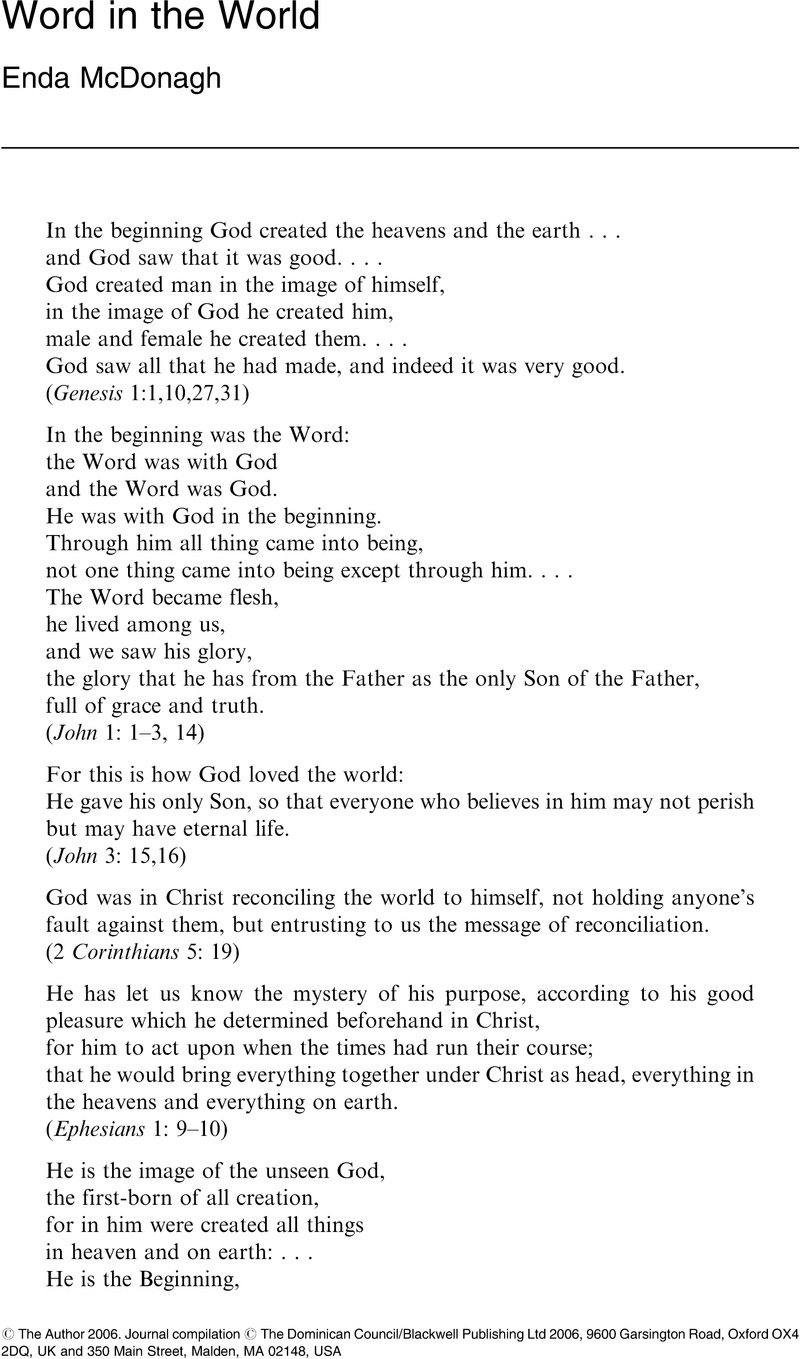No CrossRef data available.
Article contents
Word in the World
Published online by Cambridge University Press: 01 January 2024
Abstract
An abstract is not available for this content so a preview has been provided. Please use the Get access link above for information on how to access this content.

- Type
- Original Articles
- Information
- Copyright
- © The Author 2006. Journal compilation © The Dominican Council/Blackwell Publishing Ltd 2006, 9600 Garsington Road, Oxford OX4 2DQ, UK and 350 Main Street, Malden, MA 02148, USA
References
1 Lash, N, Holiness, Speech and Silence: Reflections on the Question of God, Ashgate 2004Google Scholar; Boyle, N, Sacred and Secular Scriptures: A Catholic Approach to Literature, Darton, Longman and Todd, London 2005.Google Scholar
2 S Heaney, The Redress of Poetry, Faber, London 1995.
3 G Steiner, Real Presences, London 1989.
4 E McDonagh, Vulnerable to the Holy: In Faith, Morality and Art, Columba Press 2005.


